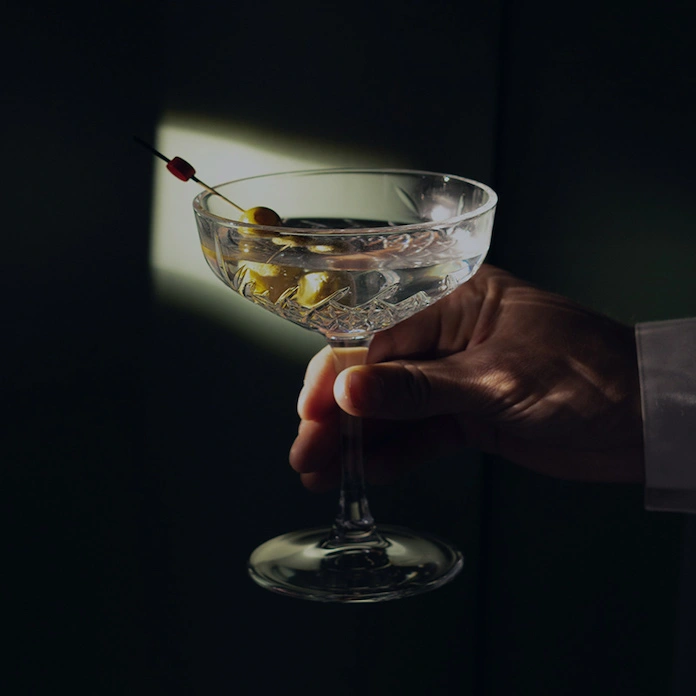
Alexander Grappa Bold Italian Spirit from the Bottega Family

Alexander Grappa is at the intersection of artistry and tradition, offering a range of ultra-premium, single-varietal grappas presented in luxurious, hand-blown glass bottles. (Each is designed by owner Sandro Bottega himself — in fact, “Bottega glassmaking” is a top Google search all on its own!) The eye-catching vessels are handcrafted by master glassblowers at the Bottega family’s own glassmaking facility, using traditional techniques developed in Venice in the 1400s.
Italy’s Veneto is the birthplace of grappa and home to Bottega SpA, which is owned and operated by the Bottega family (who has been cultivating vines in Italy for over 400 years). Since 1983, siblings Sandro, Stefano, and Barbara lead their now three-generation family business that produces and distributes premium Italian wines, grappa, and liqueurs to a global market.
Double- and triple-distilled in copper steam alembic stills, Alexander grappas are highly refined, aromatic, smooth, and lower in alcohol than traditional versions (clocking in at around 40% abv). They are made by distilling the pomace from the winemaking process — a blend of grape seeds and skins also called the marc. Alexander distillates are made from only the finest grapes grown in Italy’s most important wine regions, including Prosecco, Valpolicella, Barolo, and Montalcino.
The Bottega family is honored to share with the world Alexander, an “aqua di vita” that truly embodies Italian tradition and camaraderie.
Alexander Grappa Highlights
Alexander won “Grappa Distillery of the Year” at the 2020 New York International Spirits Competition.
Alexander was among the first grappa brands to produce a mono-varietal grappa, and now offers a range of grappas from over 20 different grapes.
In addition to grappa and glassware, this energetic family’s ventures include production of wines and sparkling wines, wine accessories, still wines, liqueurs, gin, and olive oil.

-
Founded
1987 -
Location
Veneto, Italy
The History of Italian Grappa
Grappa production dates back to Assyrian-Babylonian times, introduced to Italy by way of the Egyptians. Originally, its reputation was medicinal — a “cure all” for everything from toothaches and high cholesterol, to aiding in digestion at the end of a satisfying meal. Whatever the scientific facts may be, grappa has become an Italian institution best enjoyed in good company over great conversation.
Sustainable by Nature
The Bottega family distilleria was specifically designed to conserve energy and use renewable sources to generate its own energy. The vineyards around the company in Bibano, in addition to those in Follina and Vittorio Veneto, correspond to 14.5 hectares/35.8 acres and are cultivated according to the criteria of organic farming. The use of synthetic fertilizers, pesticides, herbicides, GMOs, and derivatives are prohibited. Therefore, Bottega uses only organic fertilizers and the technique of green manure to improve soil fertility.
The grappa production process itself entails zero waste since it uses the pits and skins of grapes already used to make wines. During distillation, CO2 emission is reduced substantially. Packaging is sustainable in several aspects (glass bottles, paper, cork) and there is a recycling program on the premises — just adding to the many green practices employed during the making of Alexander grappa.
The Art of Quality Grappa
Quality and care for the raw materials are the first and most important steps in the production of an outstanding grappa. For this reason, Alexander grappa is made with grape pomace from across Italy, where grapes are grown specifically for the production of the family’s line of wines and sparkling wines. At Alexander Grappa, the pomace for each grappa in their range is obtained from carefully selected varieties including glera, moscato, and pomace from Amarone and Brunello production.
The production process itself is quite unique. A co-product of wine production, distilling pomace generates a considerable amount of aromatic intensity even before aging that displays a multitude of flavors. The skins undergo three distillation phases with different temperatures. The process at Alexander Grappa takes place in traditional copper alembic, which allows for vacuum distillation, with baine-marie heating — a type of indirect heating which is much more delicate. Prior to bottling, these sophisticated grappas may also be aged in steel tanks for an additional period from six to 24 months to further enhance their aromatic profile and softness.

Passionate Winemakers and Grappa Connoisseurs
Vintners since 1635, Bottega’s family ancestors cultivated vines as tenant farmers. Andrea Bottega, the forefather of this now-burgeoning viticulture of grappa and liqueurs, cultivated vines in the hills near Molinetto della Croda in Refrontolo. Grandfather, Domenico Bottega, was a passionate wine broker who had a deep knowledge of wine and grappa. Patriarch of the family Aldo was the director of a renowned local distillery from the early 1950s, who developed innovative technical intuitions, the first of which was the production of single-varietal grappa. He founded the distillery Distilleria Bottega, located in Pianzano di Godega (Treviso), in 1977.
Today, Bottega SpA is a three-generational family business run by siblings Sandro, Stefano, and Barbara Bottega. Fast-forward four centuries, Bottega wines, grappas, and liqueurs have won multiple gold and silver awards, and can be found in over 150 countries, as well as in high-end hotels and restaurants, duty-free shops, and airlines.












